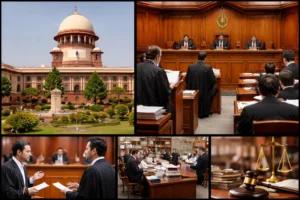The Orissa High Court has once again emphasized that an accused should be discharged if the materials presented by the prosecution at the stage of framing charges are such that, even if left unchallenged, they do not indicate any culpability. The Division Bench, consisting of Justice S.K. Sahoo and Justice Savitri Ratho, ruled that:
"If there is no ground for presuming that the accused has committed an offense, the charges must be considered groundless. The ground may include the insufficiency of evidence to support the charge. When the materials, even if unrebutted, fail to make out any case, the accused should be discharged."
Background of the Case
Petitioners Bibhuti Bhusan Mishra, a retired Additional Secretary in the Water Resources Department, and his wife Soudamini Mishra filed a petition challenging the order of the Special Judge, Bhubaneswar, rejecting their discharge petition under Section 239 CrPC.
They were charge-sheeted under Section 13(2) read with Section 13(1)(e) of the Prevention of Corruption Act, 1988, and Section 109 IPC. The prosecution alleged that petitioner no.1, being a public servant, had accumulated assets worth Rs.30,30,684 in his name and in the name of his family members, far exceeding his known lawful income of Rs.26,12,730. This allegedly resulted in disproportionate assets amounting to Rs.31,68,684.
Senior Advocate Asok Mohanty, appearing for the petitioners, argued that the charge-sheet reflected inflated figures regarding assets and expenditure. He contended that the salary of petitioner no.1 was not fully considered and that their two sons had contributed significantly to the construction of the house, but this was overlooked. He further argued that several known sources of income were ignored, and the DA amount was not properly accounted for. Additionally, he maintained that the Special Court dismissed the discharge petition in a mechanical manner.
Standing Counsel Sangram Das countered by asserting that the allegations required examination at the trial stage based on evidence. He argued that the omission of certain income details and the alleged inflation of figures must be proved during trial. He also emphasized that the trial court had limited scope to evaluate the detailed evidence at this stage.
The High Court examined the scope of Section 239 CrPC, which allows a Magistrate to discharge an accused if the charge appears groundless. The court clarified that:
"The objective of Section 239 CrPC is to prevent unnecessary harassment of an accused when allegations are baseless and lack prima facie substance."
Relying on Supreme Court precedents, the Bench reaffirmed that the Court, at the stage of discharge, must consider only the prosecution's materials. It should not engage in a meticulous examination of evidence or entertain defense claims. In exceptional cases, the High Court may consider materials that undeniably prove the allegations to be baseless. The trial court had correctly determined that a prima facie case was made out.
The Bench concluded:
"Since prima facie materials exist, the petitioners cannot be discharged at this stage. The allegations regarding contributions from their sons and overlooked income sources must be proved during trial."
Accordingly, the Court dismissed the petition, allowing the trial to proceed.
Case Title: Bibhuti Bhusan Mishra & Anr. v. State (Vigilance)
Case No: CRLMP No. 1245 of 2024
Date of Judgment: March 04, 2025
Counsel for the Petitioner: Mr. Asok Mohanty, Senior Advocate
Counsel for the State: Mr. Sangram Das, Standing Counsel (Vigilance)














